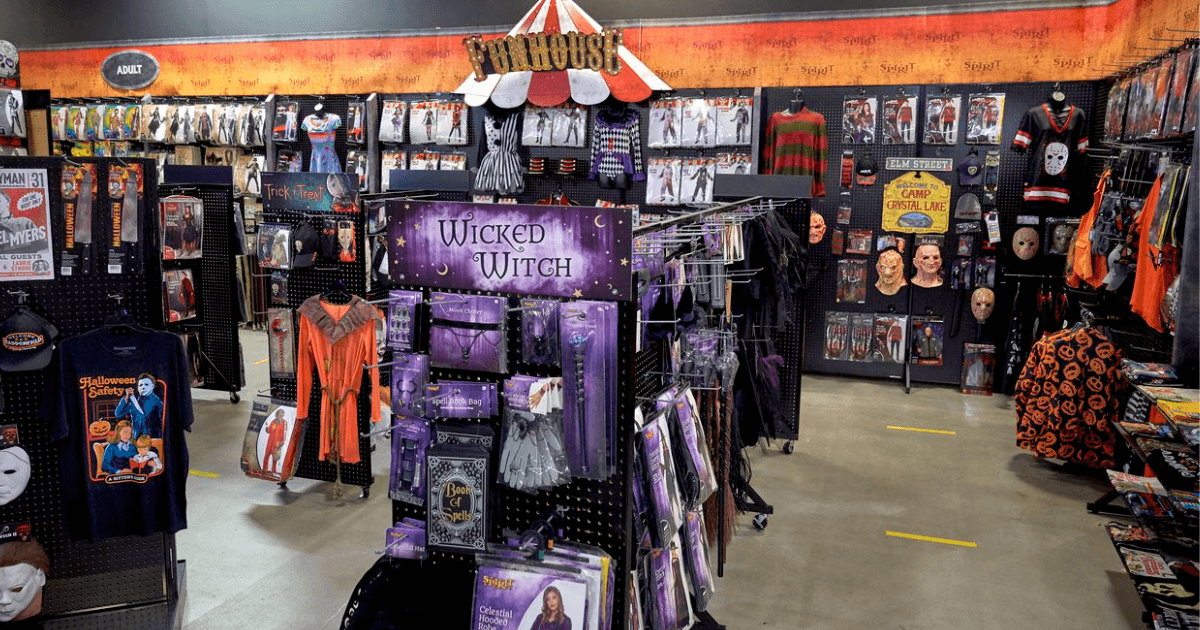Consumers, Retailers Scare Up Halloween Sales

Retailers and consumers are jump-starting Halloween earlier than ever this year and sales are forecast to reach $10.68 billion, up 3.9% from a year ago and well ahead of $8.8 billion in pre-pandemic 2019.
This increase is largely tied to more consumers expected to celebrate Halloween. Of the 8,283 people surveyed by Prosper Insights & Analytics in September, 69% are expected to join in Halloween events (up from 65% last year and 68% in 2019). And retailers—perhaps chastened by last year’s supply chain issues, which delayed shipments—placed orders and rolled out in-store displays earlier than ever.
For example, retailers like Target, Sam’s Club, and Costco placed orders in May, two months earlier than in the past, licensing executives said. Specialty retailers like Party City and Spirit Halloween also increased the number of dedicated Halloween stores they planned to open. Spirit Halloween planned to open 1,450 temporary locations, about 50 more locations than last year, while Party City was targeting 130-150 Halloween City stores, an increase from 90 stores last year.
While sales started off slowly in mid-September, they having been building momentum. One licensee reported products were “selling through stronger on bigger buys” from retailers. And as evidence of retailers having moved up their planning, revenue for Jakks Pacific’s Disguise division rose 132% to $71.5 million in the second quarter ended June.
Retailers taking in inventory earlier was a double-edged sword, however. Party City’s second quarter inventory was up 59% ($250 million) from 2021, which is expected to result in $25 million in higher-than-expected costs in the second half of the year.
“We have received our critical Halloween product, but it caused our receipts to temporarily exceed our distribution center capacity,” Party City CEO Brad Weston told investors. “We are pleased to have Halloween product here and available for customers earlier than last year, but there is an associated expense.”
How much of the sales are tied to licensed costumes, accessories, and decorations is hard to determine. But sales of products connected to nostalgic videogames like Sonic the Hedgehog and Pokémon, as well as newer properties like Fortnite, Roblox, and Minecraft, have been strong, licensing executives said. And costumes tied to movie and streaming properties like Jurassic World, Harry Potter, Stranger Things, and Cocomelon have also been selling quickly.
“Anything that is hot and new in streaming and movies becomes top of mind and you see more of those Halloween costumes,” said Tara Hefter, president and general manager of Jakks’ Disguise division, which picked up the global rights for Sonic the Hedgehog lhis year and expanded its Disney agreement to include EMEA. “Retailers like to highlight movies in feature spaces and they buy more heavily when it is a big film. Movies still move the needle, but streaming properties are catching up.”
The competition for those top properties is intense, leading both licensees and retailers to adjust their strategies in order to stand out.
For example, Rubies is doubling down on its partnership with Mattel. The retailer picked up the license for Mattel’s Monster High in EMEA to go along with the one it has for the U.S. Rubies also has Mattel licensees for Barbie, Fireman Sam and He-Man. And Disguise is shifting its costume focus to LEGO’s Ninjago property and from the co-branded LEGO Batman and LEGO Star Wars. According to Hefter, this change is due, in part, to the popularity of the Ninjago series on Netflix.




